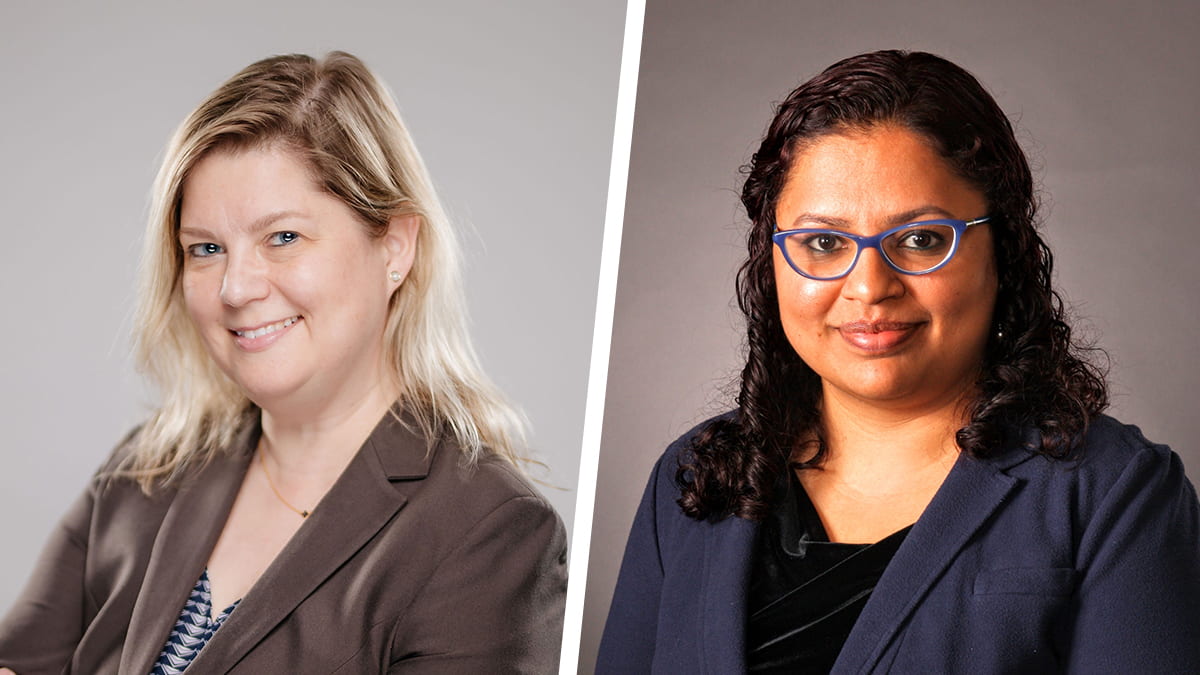VentureCat Semi-Finalist Spotlight: Blue Comet Medical Solutions

Inside Kellogg recently connected with Sara Jandeska and Rashmi Babtiwale (both E&W 2021) on their startup, Blue Comet Medical Solutions, LLC, competing in last year’s VentureCat (Northwestern University’s annual student startup competition), as well as being current semi-finalists in this year’s competition. Register to watch the final teams compete on Wednesday, May 26th at 7:00pm CT!
Tell us a little about yourself and your company?
Rashmi and I met by happenstance — her husband, Nikhil, is an expert networker! I was sitting next to him at a Kellogg-sponsored event, and he struck up a conversation. I mentioned that I wanted to build a company, and he told me about his wife (Rashmi) with similar aspirations. He made sure that Rashmi and I connected, so when we both took Kellogg professor Pete McNerney’s NU-Vention Medical Innovation course, we chose to work together on the class project.
Rashmi and I quickly realized that we have the same work ethic, drive and focus, and joined forces to create Blue Comet Medical Solutions, LLC in April 2020. We are making the only non-invasive, user-friendly medical device that allows a non-clinician to test for Strep throat. Since then, we have been invited to five pitch contests and worked with three incubators.
It’s been a year like no other. What skills and/or principles have helped you navigate this year in growing or launching your company?
We have learned so much over the past year, and the guidance we received from Kellogg and Northwestern’s Farley Center for Entrepreneurship & Innovation has provided such solid direction. We are in the business of simplifying health care by creating a medical device that eliminates the need to seek a physician visit for in-person testing. We learned how to get to the root of understanding the pain points, the ambulatory health care ecosystem, and how we can connect seamlessly with our customer. Providing value to all stakeholders is key — learning about what matters to each group is essential. Paradoxically, COVID has helped us connect by making video conferencing the new norm. Networking has become more efficient and acceptable to conduct remotely.
Tell us about your experience competing in last year’s VentureCat competition? Were there key lessons that helped you with preparing for this year’s competition?
We were so new when we competed last year. It was our first pitch contest, so getting our pitch-organized, working with a designer on our deck, and presenting to VCs were all experiences we didn’t have. We learned that we needed to understand the unit economics and go to market strategy to a T.
What are you most looking forward to with this year’s VentureCat competition?
We are looking forward to telling the judges about our plans and answering their questions. We’ve come a long way.
Any advice to aspiring entrepreneurs?
Networks and partnerships are key — working in a silo might be okay in some professions, but it doesn’t work when building from the ground up.
